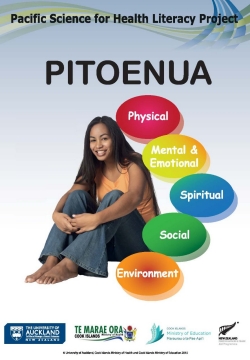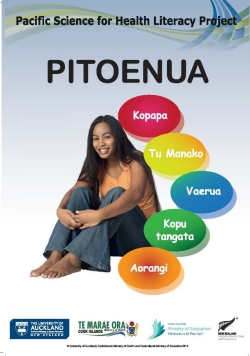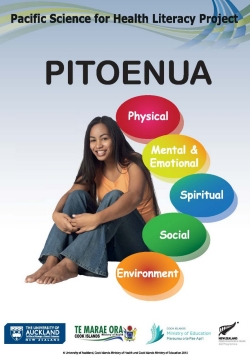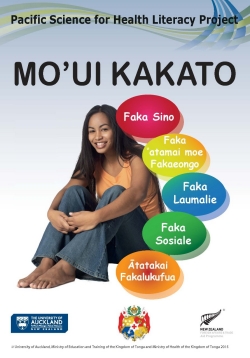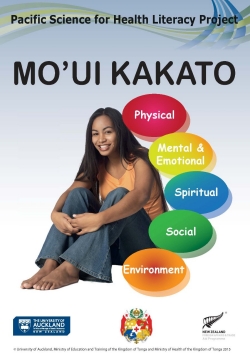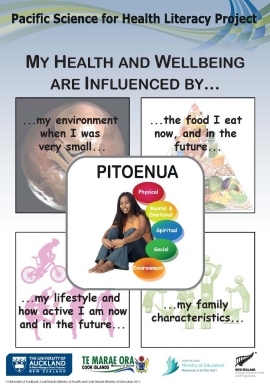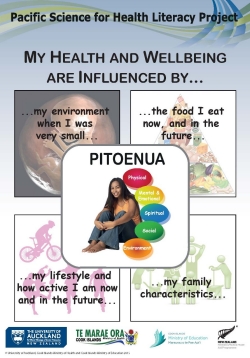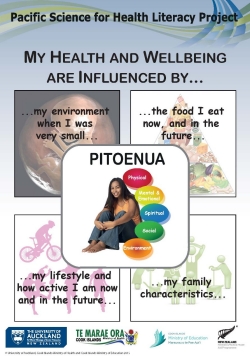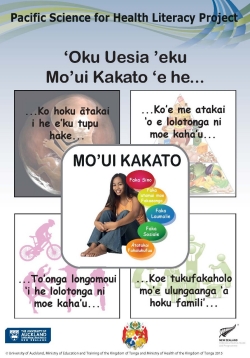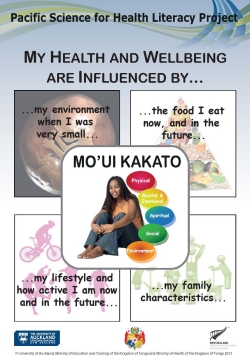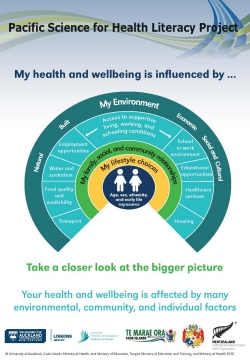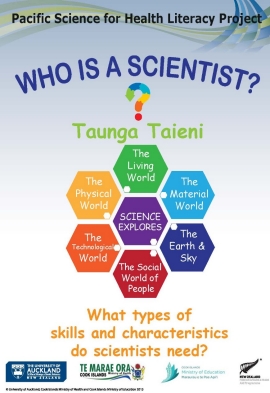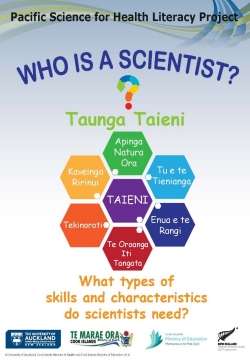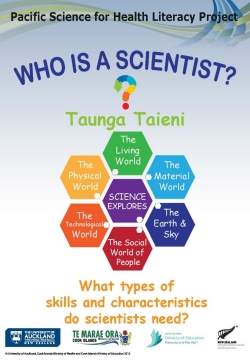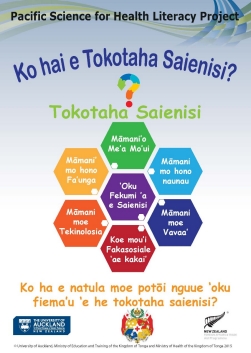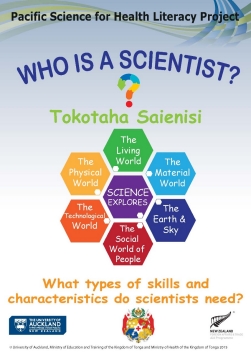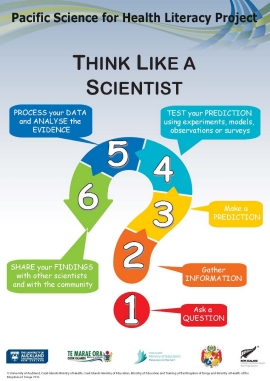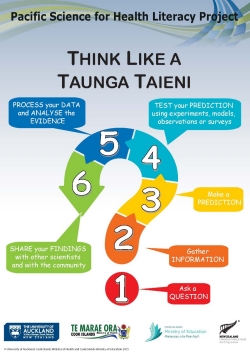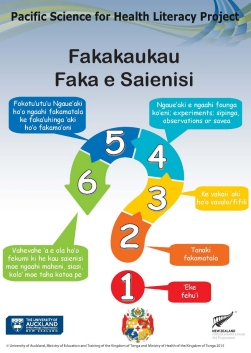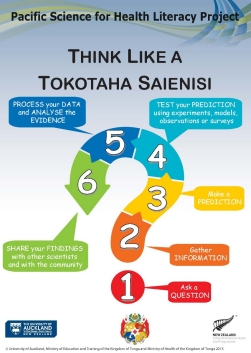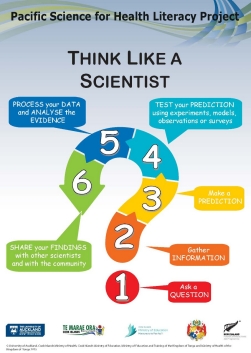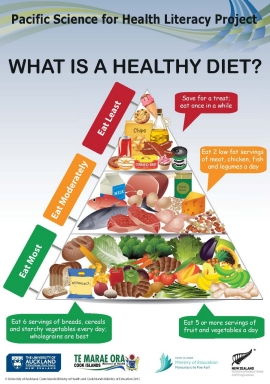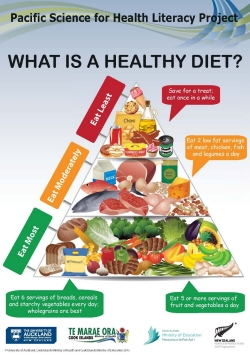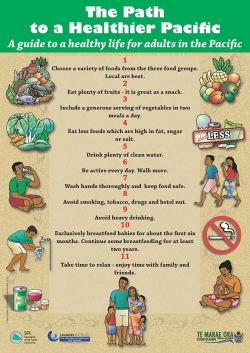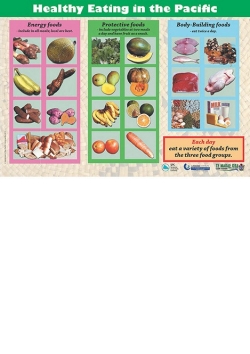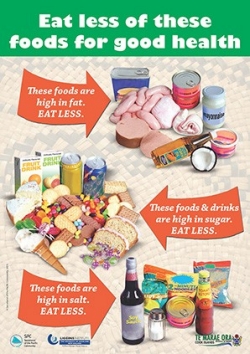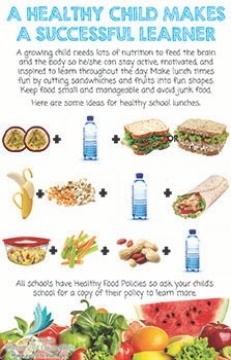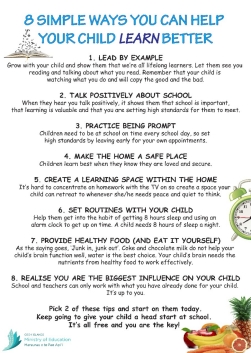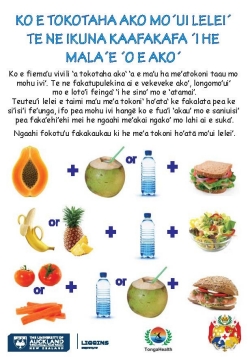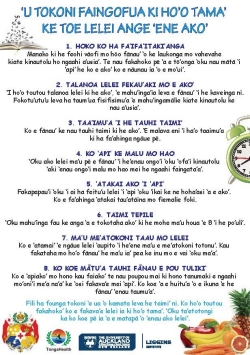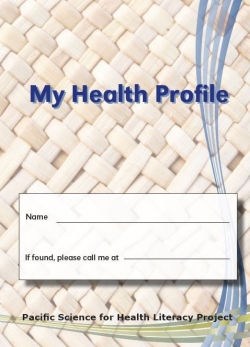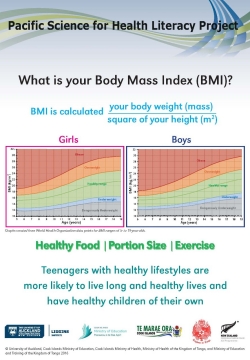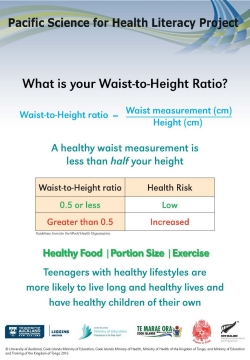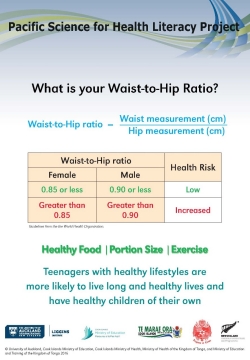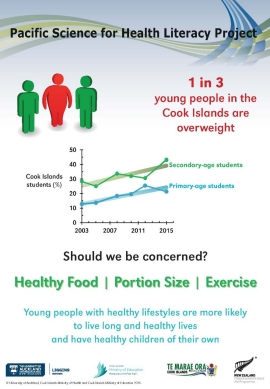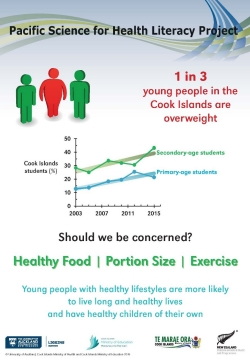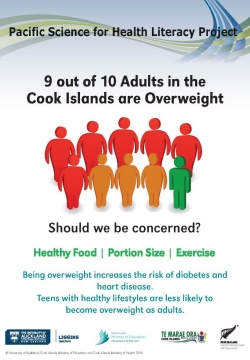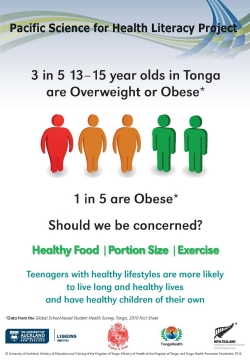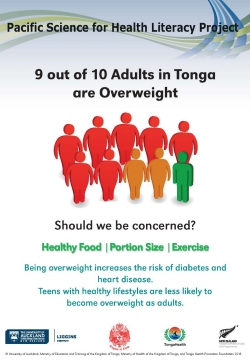The Pacific Science for Health Literacy Project promotes a holistic model of wellbeing that encompasses complete physical, mental, spiritual and cultural wellbeing. This links to the World Health Organization's definition of health as 'a state of complete physical, mental and social health and not merely the absence of disease or infirmity' (WHO, 2003). Learning programmes explore these concepts, including looking at values that are essential to supporting optimal health and wellbeing in a community.
Links to learning resources
Students in the middle school (Years 7 - 10) explore perceptions of different groups within the community regarding what it means to be healthy and well. This encourages learners to identify their own thinking, as well as allowing them to explore the thinking of others regarding this concept. Learning resources support students to undertake research in their family, school, or community to explore these concepts.
Students in the senior secondary school (Year 11) add further depth by engaging in learning that examines concepts of socio-ecological determinants of health and wellbeing, and explore concepts of social inequity associated with health and wellbeing.
Downloads
Downloads are available in Cook Islands Māori, Tongan and English.
For printing at A2, A1 or A0 please download the 'FULL SIZE' version which has print marks for commercial printing. The 'SMALL' version does not have print marks and is suitable for A3 colour printing.

